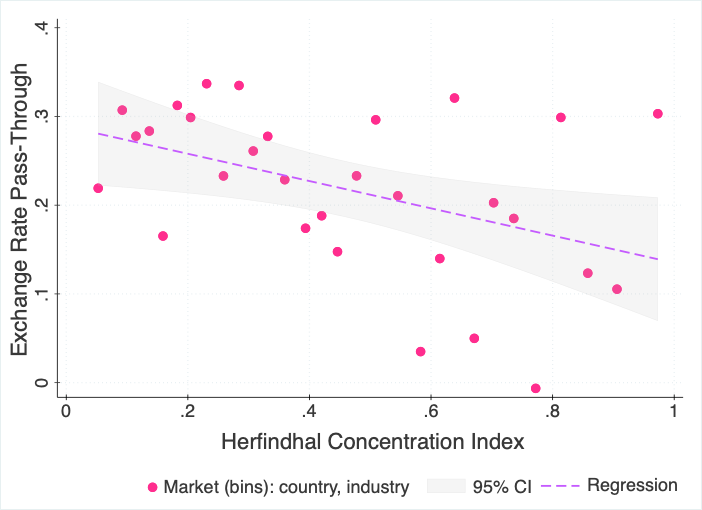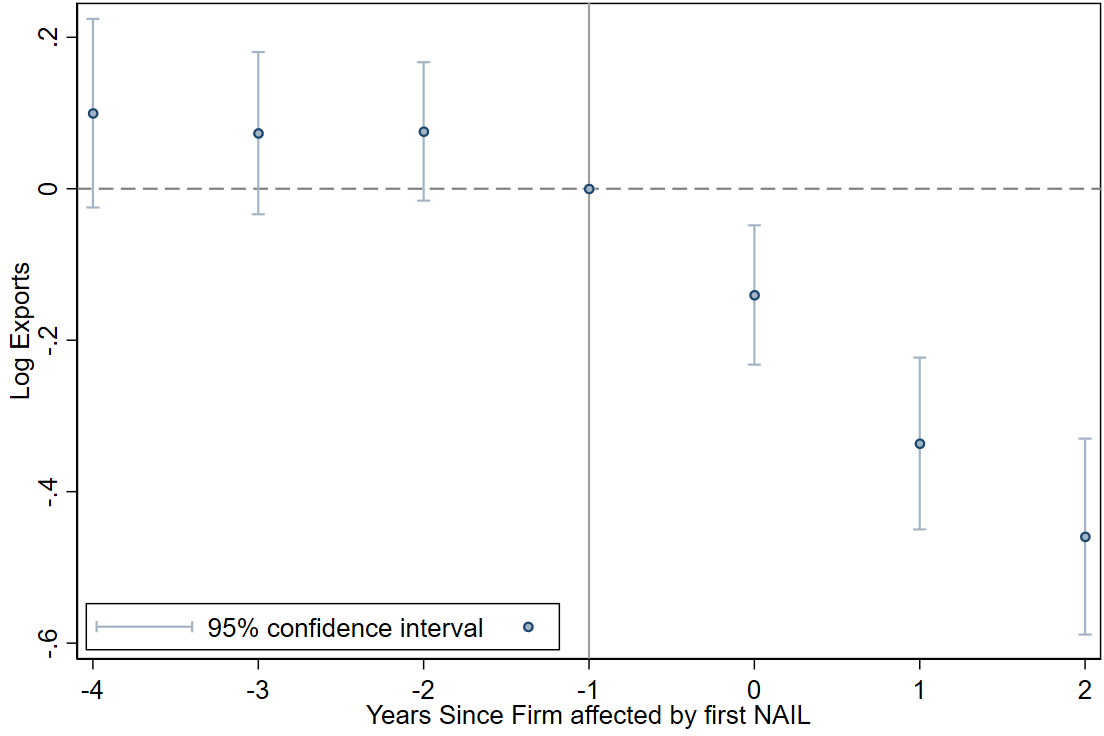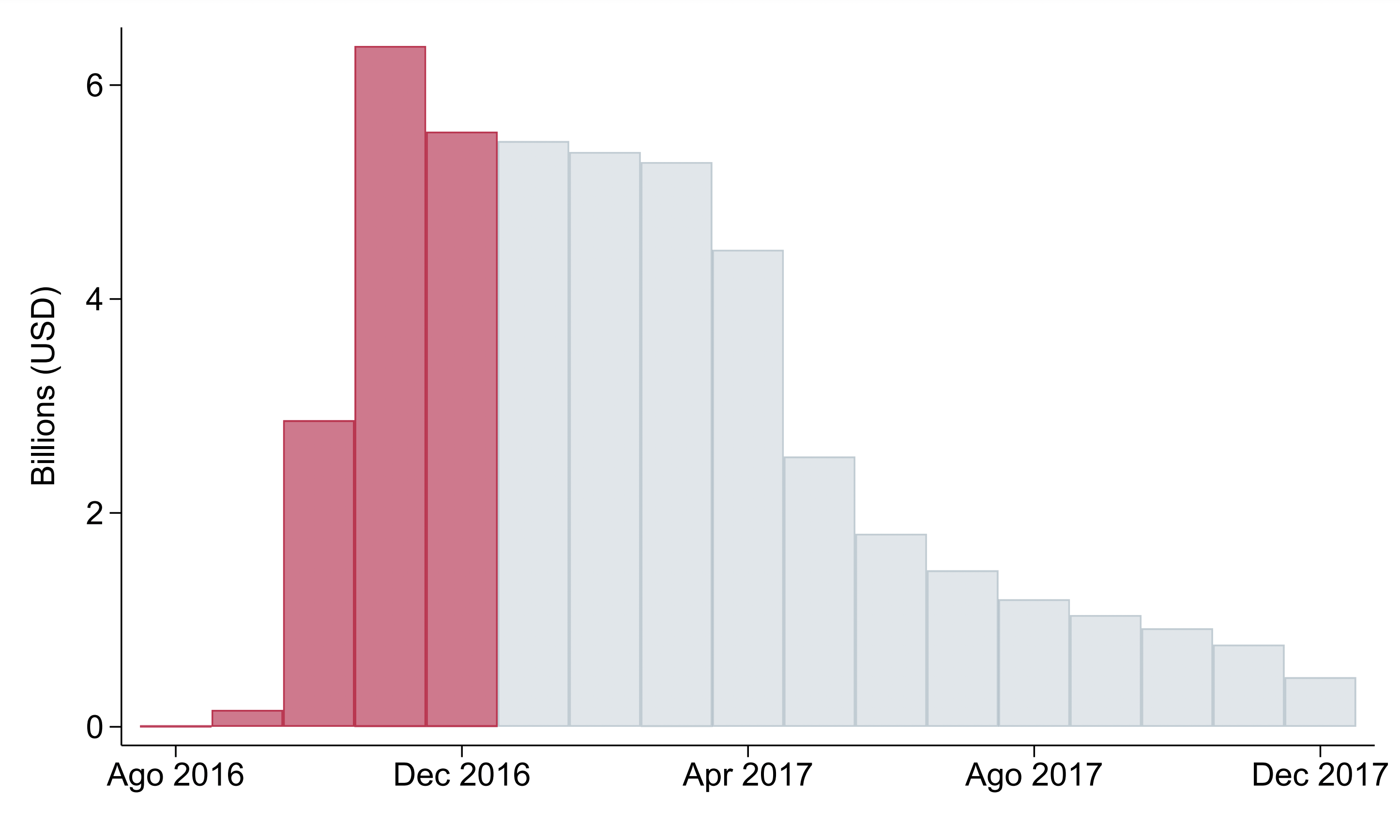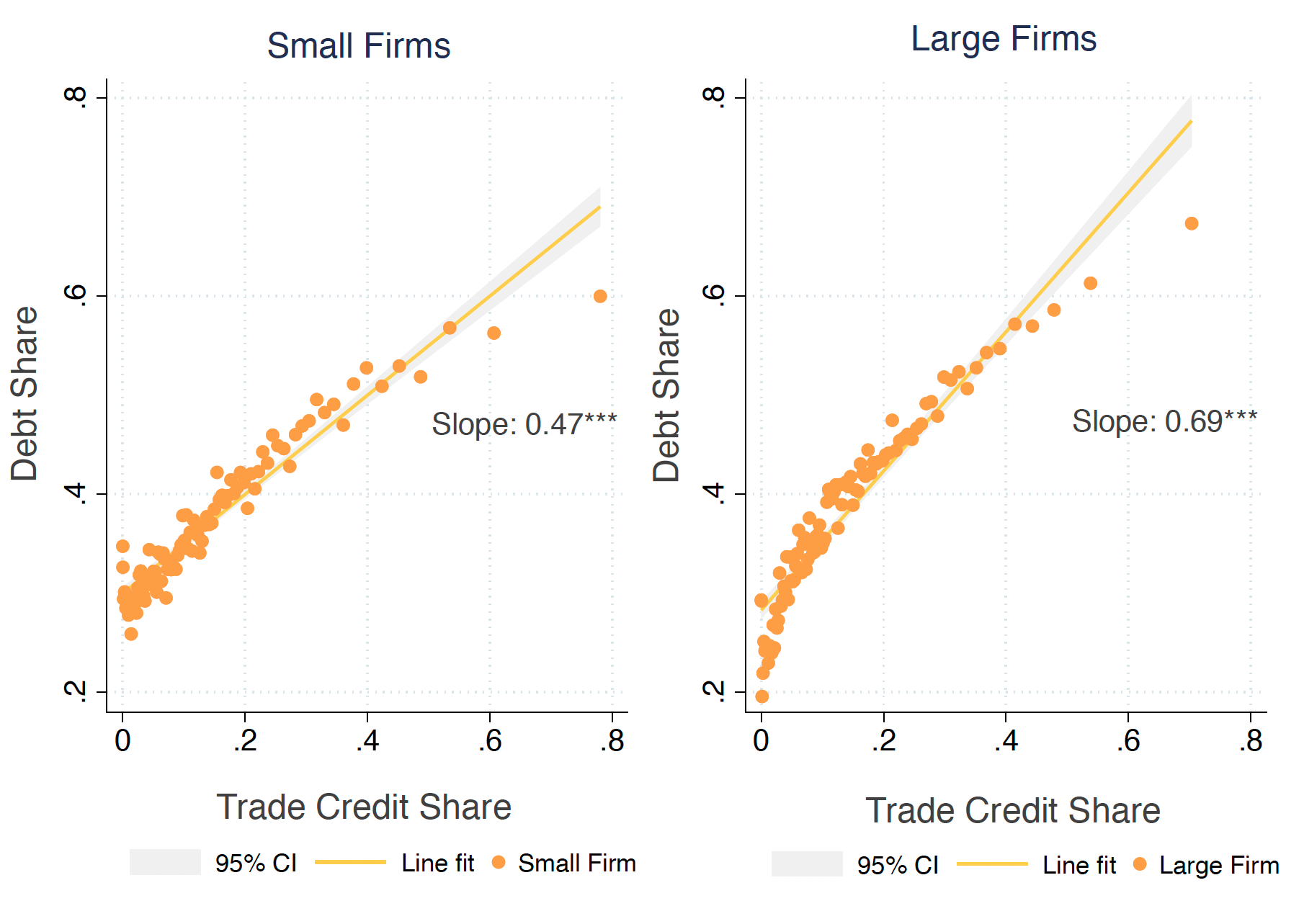Leticia Juarez
Welcome!
I am an Economist at the Research Department of the Inter-American Development Bank (IDB). I work on the fields of International Economics, Macroeconomics, Environmental Economics.
I received my Ph.D. in Economics from the University of Michigan in 2023.
Feel free to reach out to me at leticiaj@umich.edu
You can find my CV here.




